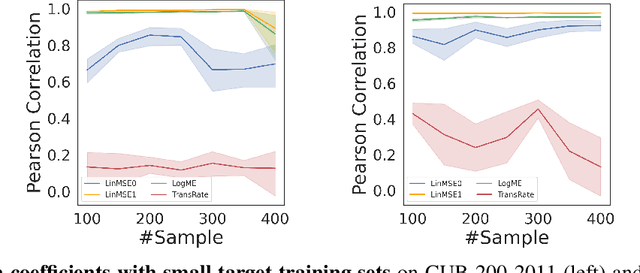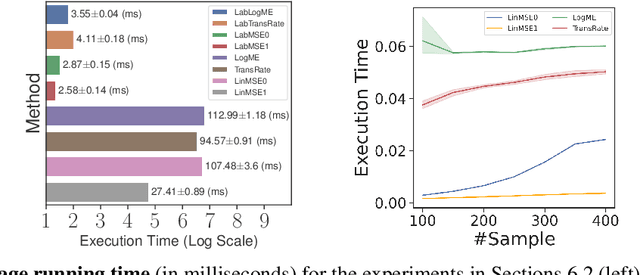Anh T. Tran
Simple Transferability Estimation for Regression Tasks
Dec 04, 2023



Abstract:We consider transferability estimation, the problem of estimating how well deep learning models transfer from a source to a target task. We focus on regression tasks, which received little previous attention, and propose two simple and computationally efficient approaches that estimate transferability based on the negative regularized mean squared error of a linear regression model. We prove novel theoretical results connecting our approaches to the actual transferability of the optimal target models obtained from the transfer learning process. Despite their simplicity, our approaches significantly outperform existing state-of-the-art regression transferability estimators in both accuracy and efficiency. On two large-scale keypoint regression benchmarks, our approaches yield 12% to 36% better results on average while being at least 27% faster than previous state-of-the-art methods.
Transferability and Hardness of Supervised Classification Tasks
Aug 21, 2019



Abstract:We propose a novel approach for estimating the difficulty and transferability of supervised classification tasks. Unlike previous work, our approach is solution agnostic and does not require or assume trained models. Instead, we estimate these values using an information theoretic approach: treating training labels as random variables and exploring their statistics. When transferring from a source to a target task, we consider the conditional entropy between two such variables (i.e., label assignments of the two tasks). We show analytically and empirically that this value is related to the loss of the transferred model. We further show how to use this value to estimate task hardness. We test our claims extensively on three large scale data sets -- CelebA (40 tasks), Animals with Attributes 2 (85 tasks), and Caltech-UCSD Birds 200 (312 tasks) -- together representing 437 classification tasks. We provide results showing that our hardness and transferability estimates are strongly correlated with empirical hardness and transferability. As a case study, we transfer a learned face recognition model to CelebA attribute classification tasks, showing state of the art accuracy for tasks estimated to be highly transferable.
 Add to Chrome
Add to Chrome Add to Firefox
Add to Firefox Add to Edge
Add to Edge